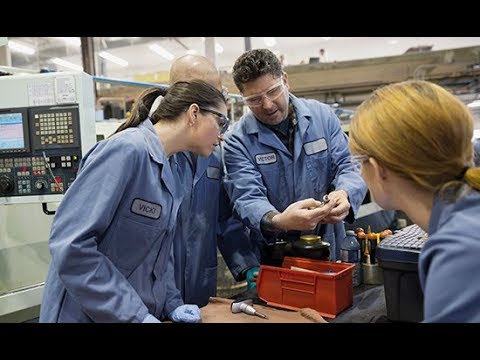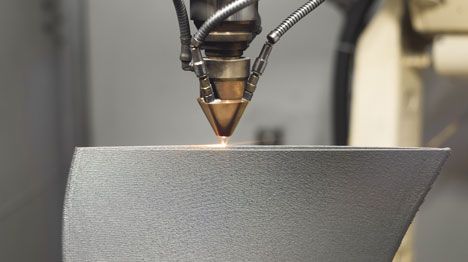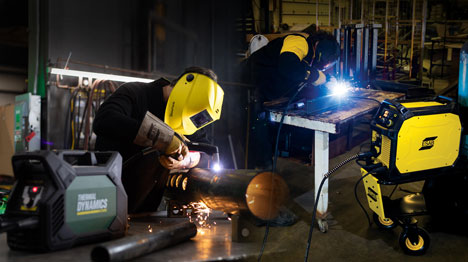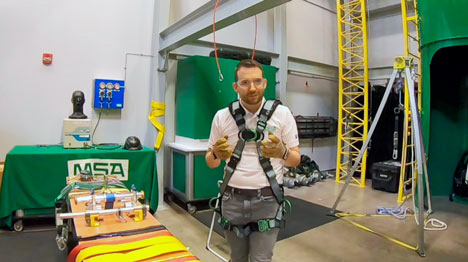John Hindman, director of learning and performance improvement at Tooling U-SME, helps us define who millennials are––and how manufacturers can better empower them in the workplace.

Self-serving. Self-righteous. Just plain lazy.
When describing today’s workforce, these three adjectives seem the most applicable to one group in particular: those gosh-darn smartphone-obsessed millennials. But can you remember what your parents and bosses used to call you as a 20-something? Something similar, no?
The truth is, we’ve always cast judgment on the generation before ours. Aristotle in the fourth century B.C. once said of the generation behind him: “They think they know everything, and are always quite sure about it.” Fast-forward centuries later, and Bret Easton Ellis in Vanity Fair expressed that millennials “are right despite the overwhelming proof that suggests they are not.”
“I hear how lazy and self-centered millennials are,” explains John Hindman, director of learning and performance improvement at Tooling U-SME, in a webinar from Tooling U-SME and MSC’s Better MRO. “But in reality, different generations might not be all that different. Oftentimes, the challenge isn’t generational––it’s the challenge of youth.”
Currently, millennials are the largest living generation with roughly 83 million individuals, per the U.S. Census Bureau. “The sheer volume of youth entering the workforce is creating a pressure cooker situation in manufacturing,” Hindman stresses. “The sooner we can get past the myths, and lean on good practices, the more we can enhance generational partnerships.”
With 419,000 unfilled jobs in the manufacturing industry as of 2017 (as reported by the U.S. Department of Labor), it’s clear that Gen Xers and baby boomers will have no choice but to share the workspace with millennials. And it’s not enough for businesses to simply “put up” with their younger co-workers and hope for the best––to stay competitive and to ensure a seamless transfer of knowledge, older generations must empower them.
Who Are the Millennials, Really?
It’s not necessarily the case that businesses don’t want to successfully hire and train millennials. According to Hindman, it’s just that they aren’t sure how––and they’re being bogged down by primarily untrue stereotypes.
According to a Tooling U-SME survey, 78 percent of manufacturers agree that millennials are important to their future, but less than 40 percent have a solid understanding of the group, their goals and their workplace preferences.
“We can’t onboard and just throw people into the same job for the next 30 years. We must adapt and leverage good practices in developing others,” stresses Hindman.
First and foremost, businesses must work to debunk traditional myths associated with millennials––and replace them with solid strategies for actual job growth and empowerment, explains Hindman.
Myth: Younger millennials have a poor work ethic.
Reality: “Millennials don’t necessarily have a poor work ethic,” Hindman says. “It’s just that they seek out the fastest, most efficient way to complete a task––but aren’t necessarily tuned in to what’s going on around them.” He goes on to say that, due to this single-focus nature, employers should throw out notions of laziness and set expectations (and structure work) accordingly.
Myth: Millennials don’t want to put in the hours to get ahead.
Reality: “While boomers see time as an investment, millennials see time as currency,” explains Hindman. “To reach millennials and reduce turnover, tell employees that you have a plan and ensure it’s within a time frame short enough for millennials to envision. And be sure to reward small successes along the way.”
Myth: Millennial employees have little respect for authority.
Reality: It’s not that millennials disrespect authority figures––it’s just that they don’t accept that authority at face value. “Dissatisfaction with a supervisor is often the top reason why millennials quit a job,” explains Hindman. “To increase retention, managers must rethink the way they lead. You can’t just hire them and be done with it … you have to win their affection. The quicker that leaders understand a relationship is involved, the better overall retention will be.”
Myth: Millennials don’t want to grow up.
Reality: Peter Pan syndrome aside, millennial employees aren’t as poised to grow into adulthood as former generations, according to Hindman. Adulthood is delayed. “They really don’t know how to grow up,” he explains. “The youngest generation is facing a delay in adulthood. Boomer parents coddled their children and did their best to ensure they were taken care of. Millennials look at the corporate ladder and must think there’s a different way when seeing their parents work long hours and pay their dues.”
Looking for help at the local level? Learn the four proven methods for filling local manufacturing jobs.
Although challenging the status quo (maybe even prematurely) could give some employers cause for concern, according to Hindman, they needn’t be worried––that type of friction is designed to spur growth.
A Focus on Mentorship and Succession
Despite a focus on the large (and looming) millennial generation, don’t discount the importance your Gen X and boomer employees have on ensuring those newcomers are equipped with the tools––and knowledge––they need to keep the company powering forward.
Hindman recommends implementing clear training and pathway programs for millennial new hires, in addition to mentoring and succession programs where more seasoned employees conduct the learning. You might also poll those same employees on what they liked or disliked about their onboarding process.
“Millennials want to see a defined pathway toward success,” he says. “Create and administer a formal training plan that’s tied directly to competency and career growth. And don’t forget to incorporate technology, which is a big comfort zone for Gen Yers.”
Related Articles

The Latest Tools and Techniques in Metal 3D Printing

Q&A: The Strategic Case for Cross-Training Maintenance Teams

Selecting the Best Welding and Cutting Equipment: What You Need to Know

Total Cost of Ownership: Why it Matters More Than Ever in Metalworking and Machining


